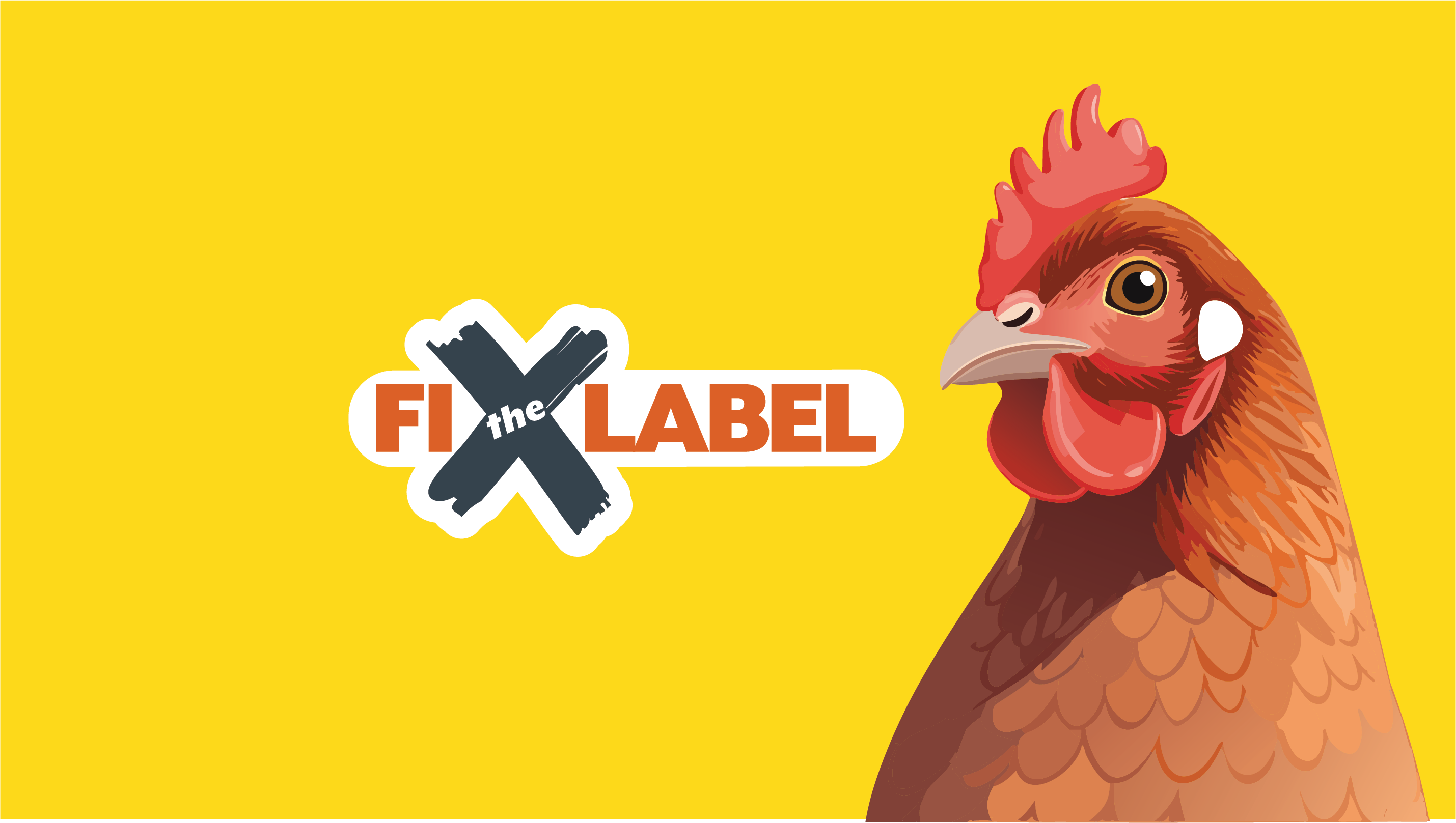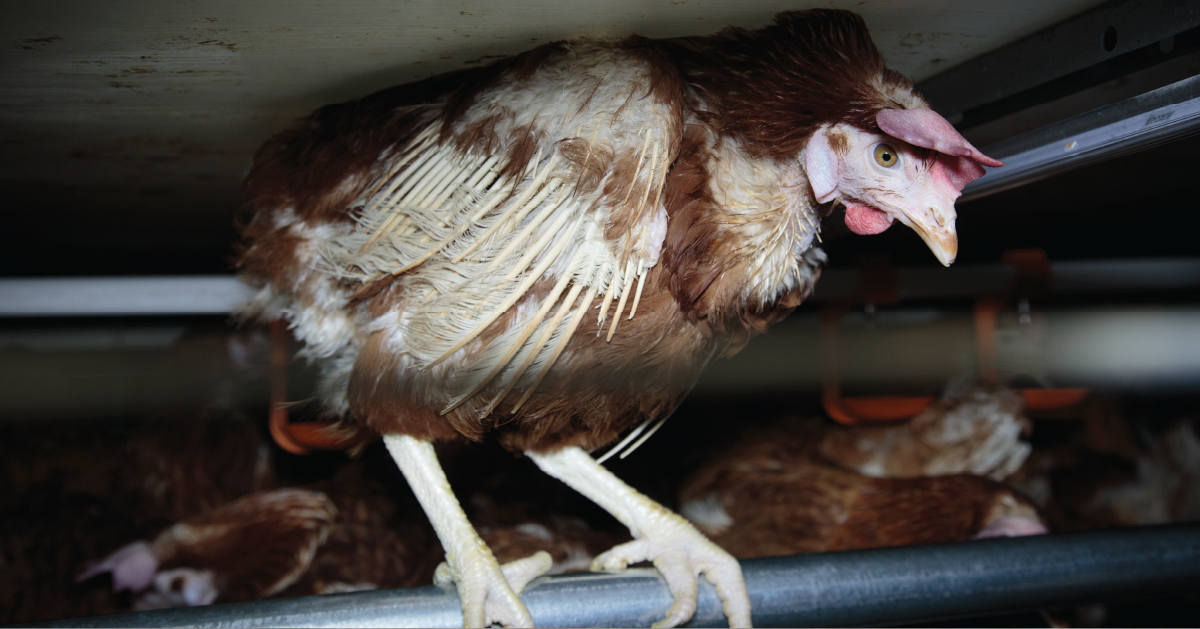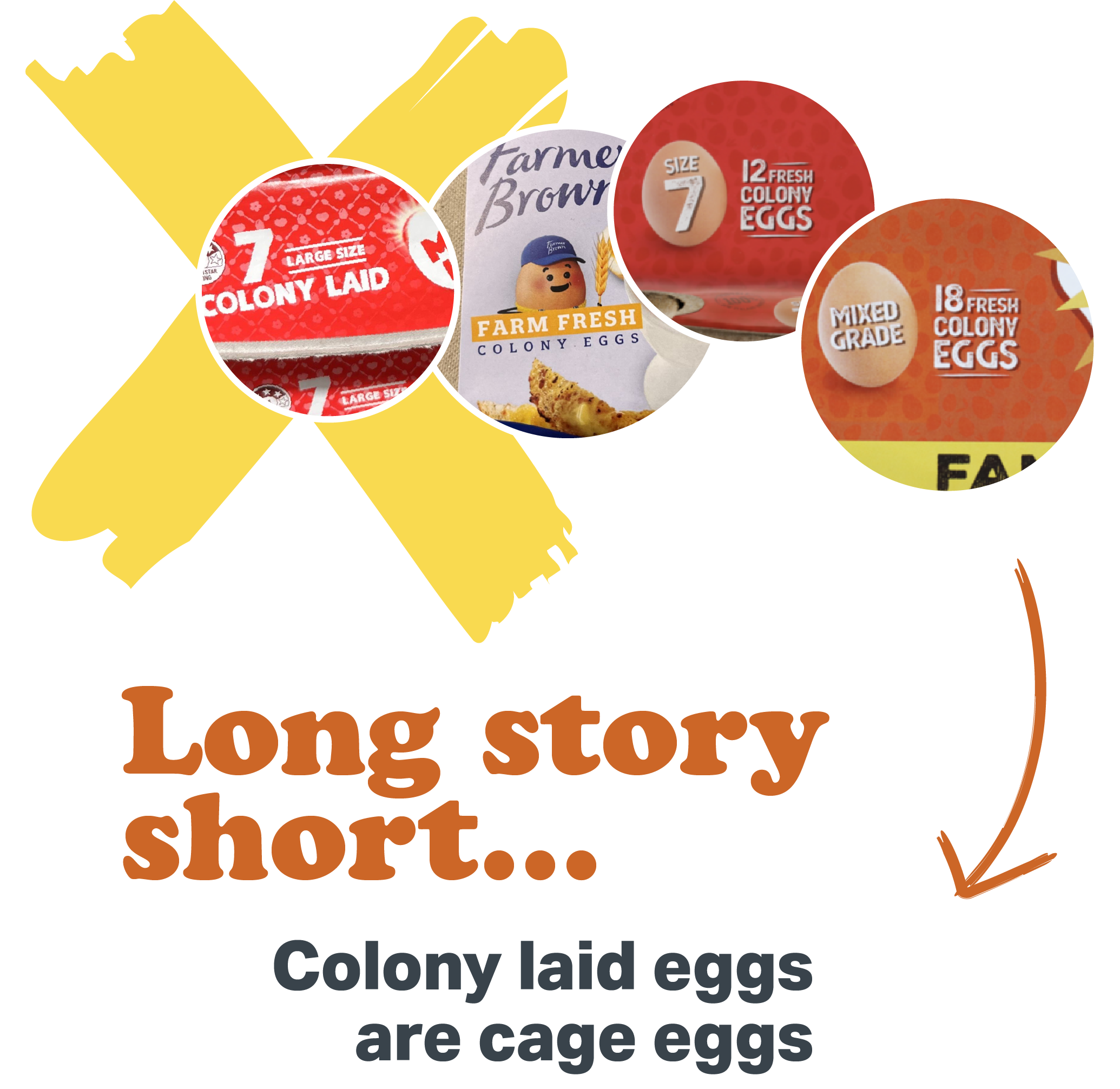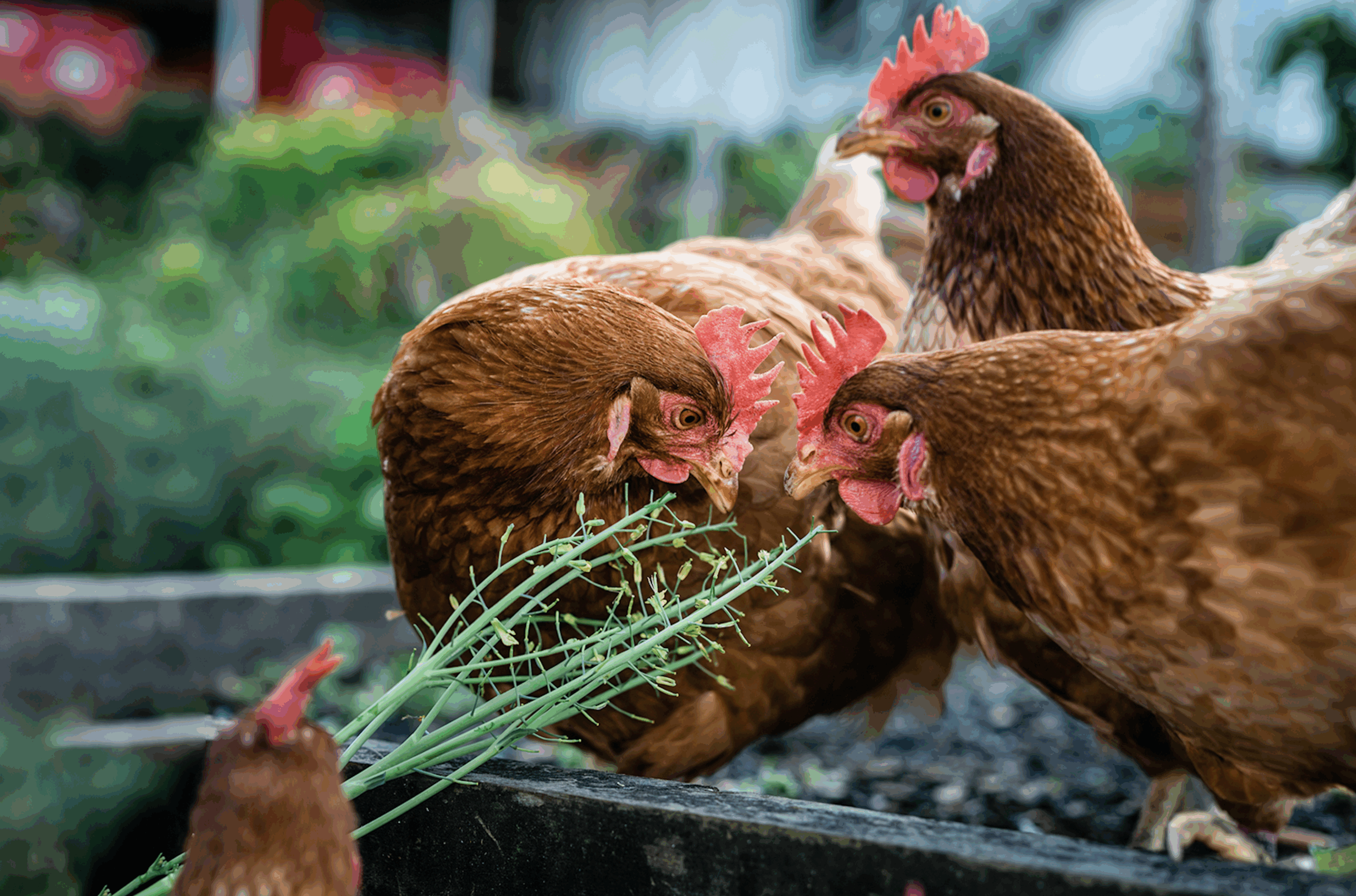
Holding the egg industry accountable for dishonest cage egg labels
October 26th, 2025Sadly, Kiwis may not be aware that one third of hens farmed for egg production in Aotearoa are farmed in these cruel cage systems. Why? Because the cage egg industry is doing its best to hide the truth.

Right now, millions of cage eggs are being sold across Aotearoa without the word ‘cage’ featured anywhere on their packaging. In fact, all cage eggs sold in New Zealand are marketed with vague labels like ‘colony’ or ‘colony laid’ – and fail to feature the word ‘cage’ anywhere on their packaging.
It seems the New Zealand cage egg industry knows exactly how strongly Kiwis oppose cruel and outdated cage farming systems. So much so, that the industry appears to rely on misleading Kiwis with confusing packaging to sell its products.
If the industry had nothing to hide about the conditions it subjects hens to, it would label its cartons honestly – using the word ‘cage’ – instead of hiding the facts behind sunshine and love hearts (yes, really – those images actually appear on some cage egg packaging). Their refusal to be transparent says it all.
Misleading labels on cage eggs aren’t just bad marketing – they’re a potential breach of the Fair Trading Act. Even worse, this lack of transparency allows the cage egg industry to quietly continue operating under the radar.

Many Kiwis may be under the impression that cruel cage systems have been completely banned in New Zealand – simply because the truth isn’t clear. Misleading labels, and the media pinning previous “egg shortages” on the battery cage ban (when this resulted from a global food shortage), has confused consumers to play straight into the hands of the businesses profiting from hens suffering in cages.
That’s why, in January of this year, SAFE submitted a complaint to the Commerce Commission calling out the industry’s use of misleading labels to market and sell cage eggs. Our solution to this problem is very simple, we’re calling for all cage eggs to be sold with the correct and honest label ‘cage’ featured on the packaging, because we believe the majority of New Zealanders wouldn’t support the cruelty of cages if it was correctly labelled.
New Zealand’s history caging hens
On January 1, 2023, battery cage systems were finally banned in New Zealand after a ten-year phase out period. This ban was announced in 2012 after the New Zealand Government recognised the use of battery cages violated the Animal Welfare Act 1999, because they prevented hens from expressing normal behaviours.
Normal Behaviours of Hens

Hens are intelligent, curious animals with a wide range of natural behaviours. These include, but are not limited to:
- Roaming and exploring their surroundings
- Foraging, digging, and scratching at the earth
- Dust bathing to maintain feather health and control parasites
- Sunbathing for warmth and vitamin D – an essential vitamin for feather and bone health
- Nest building and nesting in a quiet, secure space
Life in a Battery Cage
Many consider battery cages to be among the most inhumane forms of animal confinement. Hens kept in these systems endured horrific conditions before the ban, such as:
- Extreme overcrowding: up to six birds crammed into a single cage, with each hen given just 550 cm² of space, that’s less than the size of an A4 sheet of paper.
- Poor physical health: Brittle bones, fractures, foot conditions, metabolic disorders, cage layer fatigue, feather loss, and injuries from aggressive cage mates were just some of the health issues these birds endured.
- Short, brutal lives: Like all commercially farmed hens, battery caged hens were slaughtered at around 18 months of age, far younger than their natural lifespan, when their bodies could no longer keep up with the industry’s demand for egg production.
- Lack of mental stimulation: Battery cages provided only food and water. The denial of space and the physical and psychological enrichment opportunities are known to cause hens to experience extreme distress, boredom, frustration, fear, anxiety, and aggression towards other birds.
In 2012, the updated Code of Welfare for Layer Hens confirmed the ban on battery cages but introduced equally problematic ‘colony’ cages as their replacement. This decision was a devastating blow for hens and a staggering failure by the New Zealand Government. Rather than prioritising animal welfare, the code pushed hens from one cage into another. The introduction of colony cages in Aotearoa clearly favoured industry interests, and millions of hens have suffered as a result. If the government of the day had ensured that farming systems aligned with the Animal Welfare Act, tens of millions of hens could have been spared this ongoing misery.

Life in a colony cage
- No space for living: A single colony cage can contain up to 80 hens, with each bird allowed just 750 cm² of space – only slightly larger than an A4 sheet of paper.
- Widespread injury and illness: Brittle bones, fractures, foot conditions, metabolic disorders, cage layer fatigue, feather loss, and injuries from aggressive cage mates were just some of the health issues these birds endure.
- A life of suffering: Like all commercially farmed hens, colony caged hens are slaughtered at around 18 months of age, far younger than their natural lifespan, when their bodies could no longer keep up with the industry’s demand for egg production.
- Inadequate enrichment and restricted natural behaviours: Colony cages include metal perches, a rubber pad, and plastic flaps intended to mimic a ‘nesting area’. However, these features fall far short of replicating the natural living conditions required to support normal behaviours. With so many hens confined in an overcrowded space, access to these limited resources becomes highly competitive, leading to stress, frustration, and aggression.
The use of colony cages breaches New Zealand’s Animal Welfare Act, as they prevent hens from expressing normal behaviours. Despite this, one-third of hens farmed for eggs in New Zealand are still confined to cruel colony cages.
Our complaint to the Commerce Commission
In March 2024, SAFE commissioned an independent poll to understand how Kiwis perceive current cage egg labelling. The results confirmed our concerns: 84% of New Zealanders did not realise that ‘colony laid’ eggs come from caged hens, and 72% agreed that the current labelling is misleading.
To address this, SAFE submitted an official complaint to the Commerce Commission in January 2025. We argue that:
Labelling eggs as ‘colony laid’ or ‘colony eggs’ is misleading and fails to accurately describe the farming methods used to produce the eggs.
These misleading labels are a violation of the Fair Trading Act 1986, that states under sc9 and sc10 must not mislead or deceive the public, and under sc13(a) states that no trader must use misleading representation.
The solution to this problem is simple and it won’t cost the industry or consumers anything to implement. SAFE is calling for all caged eggs to be sold with clear and honest labelling that includes the word ‘cage’ on the packaging.
In total, 10,781 caring individuals signed their names in support of our complaint. We submitted this powerful show of public concern to the Commerce Commission as a supplementary document in March. In response, the Commission confirmed that our complaint meets the threshold for investigation.
The matter is now with the Fair Trade Committee, and an investigation is currently underway.
SAFE would like to sincerely thank everyone who took the time to sign our complaint to the Commerce Commission and those who have generously donated to this campaign. We cannot achieve our aim of banning cruel cages in Aotearoa if Kiwis don’t know that hens are still being kept in cages. Thanks to your support, we are one step closer, all while holding the industry accountable and exposing the reality behind cruel cage egg farming systems.
What can you do to help?
- Go a step further, remove your support from the egg industry by choosing egg-free alternatives and exploring delicious egg-free recipes.
- Join our animal action network to keep updated on the results of the complaint and on work SAFE is doing to support hens. You’ll also be the first to know when we have new actions you can take with us, for animals!
